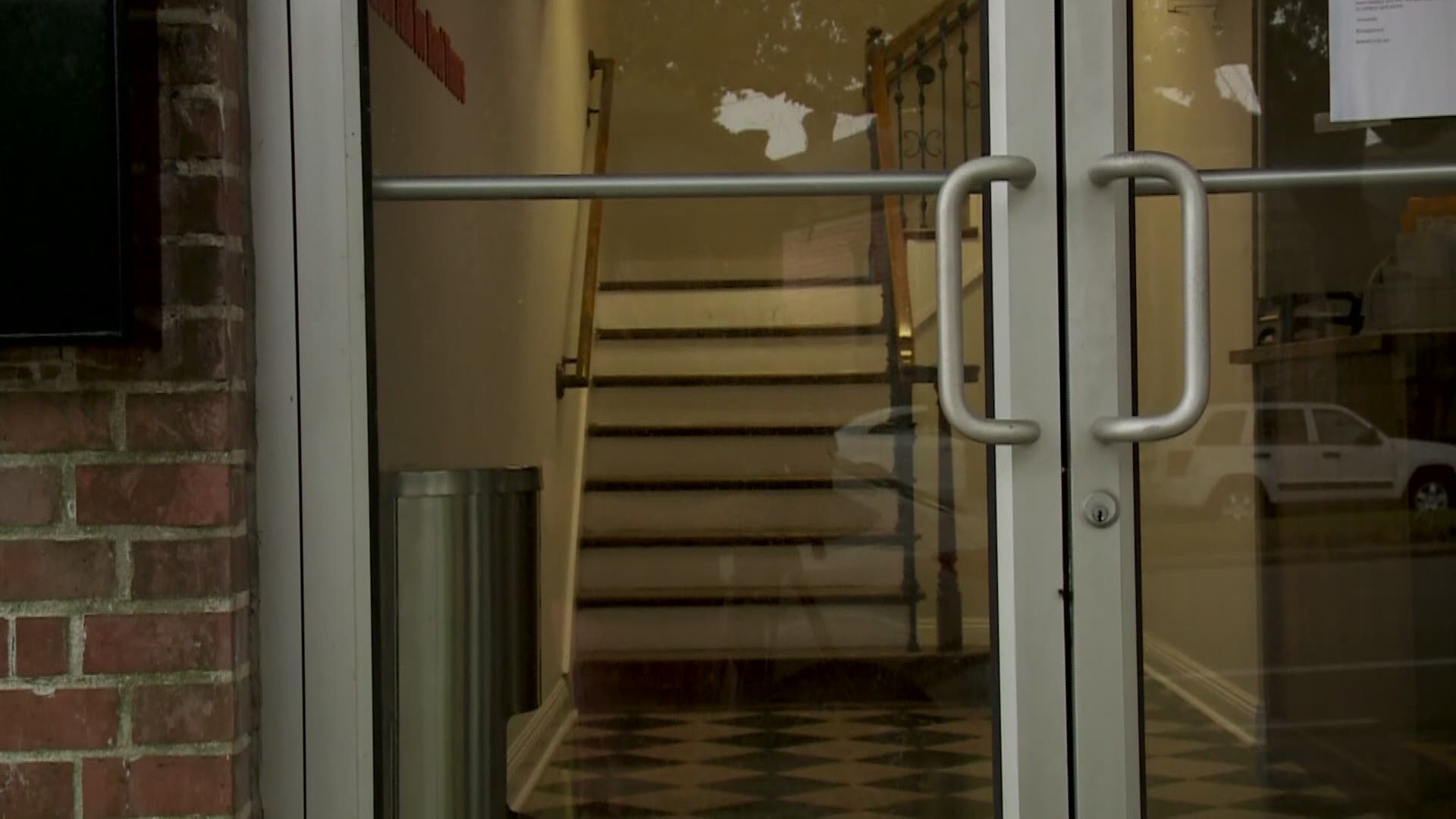NEW ORLEANS — Hurricane Katrina produced its share of heroes, villains and victims.
A key figure who could check all of those boxes is Eddie Compass, who went into the storm as the chief of the New Orleans Police Department, only to be forced to resign four weeks later by then-Mayor Ray Nagin.
It was a heart-breaking downfall that Compass recounted in emotional detail Thursday morning on WBOK radio, sharing his memories and still raw emotions with host Oliver Thomas.
“What do you say to people who said Katrina was too much for you to handle?” Thomas asked Compass upfront.
“I look at the government's response,” Compass responded. “It was too much for the government to even handle. I'm one man. I'm one person, and I gave my heart and soul. I did my job. I did everything humanly possible. I stood at the forefront. I was in that water.”
Compass said his forced departure was especially painful because rising to the superintendent of this hometown police department was his dream job after two decades as a successful street cop, narcotics detective, community policing pioneer and district commander.
Compass had 26 years on the force when Katrina hit on Aug. 29, 2005, but the emotion-driven career cop also had distractions: the safety of his wife, who was eight months pregnant, and their three-year-old daughter.
One of the first things that got Compass in trouble with his boss was going on national TV with reports that turned out to be false, including an account on Oprah of “babies being raped” inside the Superdome, which was being used as an evacuation shelter.
Compass explained that he used the word “babies” to refer to girls, but said he quickly regretted his word choice.
“It was a mistake,” he said. “It wasn't babies, it was younger people.”
“When people call me a liar, it broke my heart because I was giving my heart and soul to this city, and I was reporting things that were reported to me — that in my heart-of-hearts I thought was true.”
Compass explained that in some instances, he was too quick to repeat unconfirmed accounts of what was being told to him by officers in the field. But he said he did so in the spirit of transparency, trying to maneuver under chaotic conditions after most radio communications were disabled by the storm.
Another blow to Compass’ reputation came when he broke down in tears during an interview. One photograph of Compass that moment was widely circulated and eventually interpreted by Nagin as a sign of cracking under pressure.
“I cried, and they took pictures of that,” Compass said. “That's one of the pictures Ray Nagin used to say that I was weak. He said I was weak, and that I didn't have what it took to run the police department.”
But what people didn’t know, Compass said, is that moments before the interview, he was told about the suicide of one of his sergeants, public information officer Paul Accardo. Accardo, 36, drove to LaPlace and shot himself after receiving a false report that his wife may have perished inside their flooded home in Lakeview.
“Twenty minutes or thirty minutes after I talked to this man, he killed himself,” Compass said. “I said if I'd have just taken the time to stay with him, to keep him with me, he wouldn't have died.”
“To this day, that haunts me,” he said.
For a cop who earned a black belt in karate, boasted about tearing a phone book in half with his bare hands and served high-risk arrest warrants to violent drug dealers, the portrayal of weakness was a crushing blow.
“Do you realize how difficult it was — for somebody like me who has prided himself on being a man of courage, who has given to his community — being called a coward?” he asked.
In the fog-of-war environment that engulfed the city after the storm, Compass recounted many other episodes that went overlooked amid his unceremonious firing.
Compass recounted helping evacuees inside an over-crowded Superdome, going on boat rescues to save residents from floodwaters, and the scrapes from underwater obstacles while wading through his inundated city.
“You get two and three hours sleep for a three-week period,” he recounted. “Then you have to go in that water, get battered and bruised, get all cut up on your legs like my legs were and your legs were, filled with sores.”
“The sores from the toxic water,” Thomas responded, who as a city council member during Katrina made some of his own forays into the floodwaters.
“We did a lot of things good that we didn't get credit for,” Compass said. “We saved a lot of people's lives, man. That we didn't get credit for.”
“I broke down a couple of times,” Compass said.
“Who didn't?” Thomas responded.
► Get breaking news from your neighborhood delivered directly to you by downloading the FREE WWL-TV News app now in the IOS App Store or Google Play.

